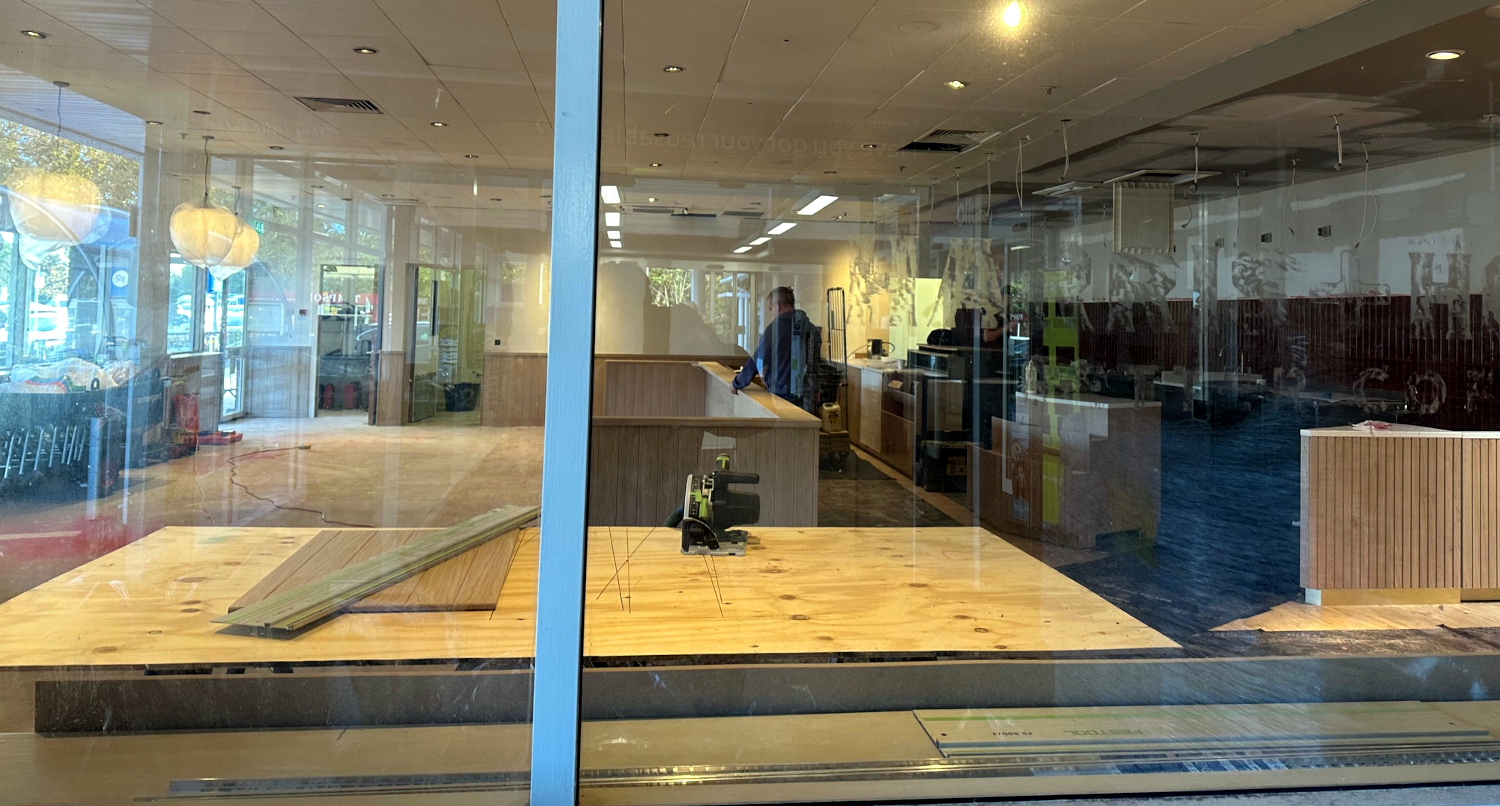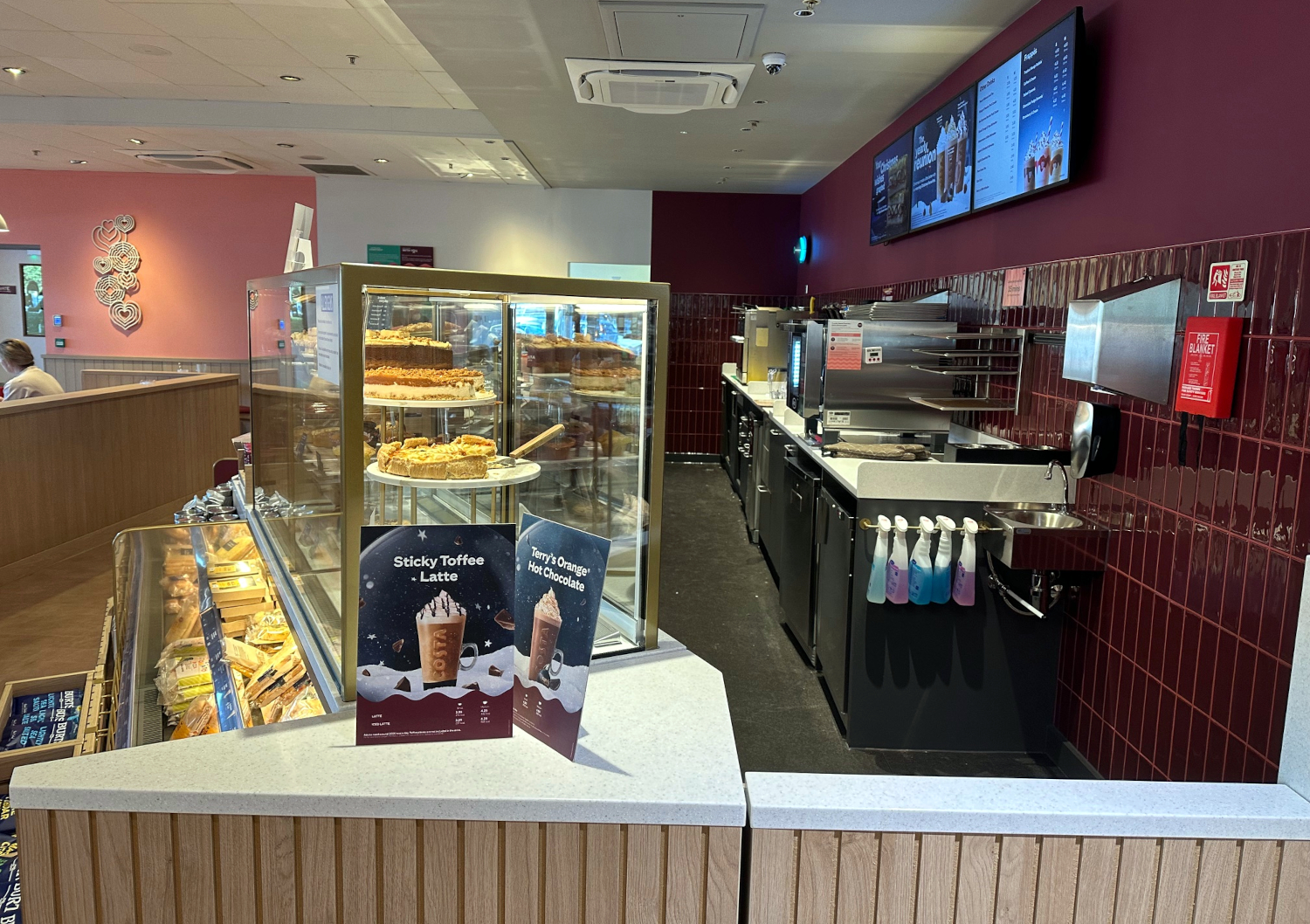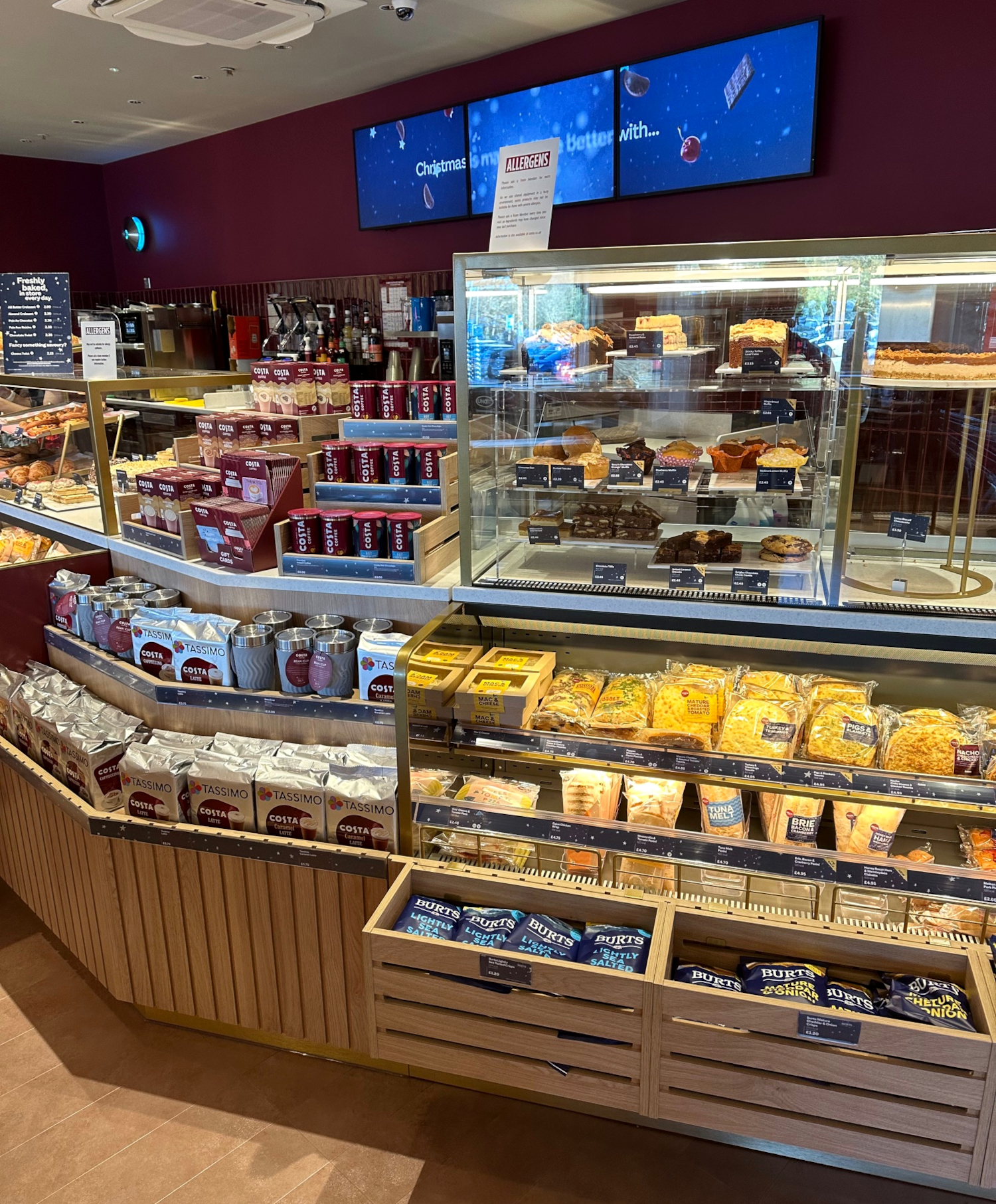The coffee industry in the UK looks forward to 2024
Over the last decade premium coffee sales have been a growth market in the UK with a nation of tea drinkers adopting the taste for freshly brewed coffee beans prepared by expert baristas. The coffee shop industry is said to be worth £4.9 billion in December 2023 and there are currently more than 8000 coffee chains operating in the United Kingdom and more than 25 thousand individual coffee shops. (1) (2)
The largest chain in the UK is international brand Costa coffee. which opened a new store as part of Tesco’s supermarket development in Chichester, West Sussex this season, taking over from Harris and Hoole who already have a busy high street premises in the medieval city on the English south coast. It only takes a few weeks to construct and develop a new store ready to open, especially if all the equipment and supplies are prepared ready at a centralized head office who are used to delivering new outlets smoothly.
In many areas across England, Scotland, Wales and Northern Ireland there are now a wide selection of coffee houses with a mix of well-known high street brands. Independent café businesses offering a unique hand crafted coffee drinking experience have increased in popularity. (2)
Coffee shops in most towns were relatively resilient throughout and after the pandemic lockdowns as they were usually able to offer takeaway services instead. However city areas that did not get the usual flow of thirsty commuters were temporarily affected.

Over the last two years many people have been economising due to rising inflation (including rising energy prices) and the cost of living crisis. A coffee that costs more than £4.50 may be out of many folks spending budgets nowadays. However, thousands of cafes may have benefitted from taken custom away from restaurants and bars as friends, colleagues and family members still want to meet up somewhere warm and socially vibrant, that is still relatively inexpensive as an outing.
Premium drinks are still popular and items such as Costa’s new luxury Frappe’s can become a filling snack instead of a more expensive lunch out. So ‘scaling back’ dining out behavior by consumers may continue to support coffee shop sales. A continuing trend could be seen in 2024 that some UK residents are staying a home or packing a picnic instead of visiting a coffee shop as part of a regular routine. This change in consumer habits could well be simultaneously offset by other customers enjoying a cheaper alternative to more traditional dining options by visiting a coffee and cakes style cafe.

Inflation has affected the price of goods and services in the UK and Europe. In the UK minimum wage rises, which are important to reduce poverty for those on low incomes, combined with high rates and taxes (that businesses have to pay regardless of how much they sell) all make running a coffee shop enterprise a tall order, to run successfully.
Café culture and possible threats to the rising demand for coffee
Many medical experts have extolled the virtues of enjoying one properly brewed fresh coffee every day. There are claims that the elements in this delicious brewed drink are beneficial to brain and gut health as well as contributing to a fine cardio vascular system.
Some influencers and health professionals have advised cutting down or cutting out caffeine to maintain an optimally healthy diet and optimising mental health more recently. Coffee shops do offer different decaffeinated beverages as alternative options, so this may not be a game changer. Developing and communicating the processes of de-caffeination to consumers is important to keep them wanting to invest in a specially prepared and priced brew.
The environmental impact of importing beans from far flung places and ensuring that coffee is ‘fair trade’ and kind to the communities where it is produced, is increasingly important to consumers highly conscious about their spending choices. Similarly packaging quantity and material choice is of interest to coffee buyers.
All segments in the coffee industry in the UK declined in sales in 2022 as households and companies look for ways to cut back financial spending.
Homeowning or renting and paying for utilities is unexpectedly expensive especially in large cities this year. Working long hours and balancing family caring responsibilities is hard for many. There is an uncertain economic outlook set against a backdrop of awful wars and deeply concerning events internationally. Consequently there are reports that stress and sleep problems are more widespread than ever, as the post pandemic cost of living crisis affects nearly everyone. A recent Nuffield health survey of 8000 people revealed that only 36% of adults are getting a good nights sleep in the UK. (3)
A silver lining is that this situation can be positive for coffee sellers. Millions of people reach for their favourite cup of ‘pick-me-up’ as adults with responsibilities look to balance and get their most out of their work, studies, leisure time and family life.

The outlook is warm for the coffee industry
Over the next five years consumer experts Mintel predict that coffee sales will start to rise again as inflation and interest rate rises ease, helping the economy to have positive growth again once more. Millions of shoppers who have been looking for easy ways to reduce their monthly outgoings have made simple swaps to lower price coffee brands. Retailers competitively priced ‘own brands’ coffees have been seeing really strong sales compared to previous years.
Some cities have dozens of coffee themed cafes and there may be an oversupply in one area in 2024. It is possible in some towns that there simply may not be space to survive for any ‘mediocre’ businesses that neglect the needs of their discerning coffee fans under the current economic conditions.
Opportunities to be the cream of the coffee shop crop in 2024
However there are opportunities to embrace contemporary café culture as people of all ages look for ways to enhance their lives by taking a refreshment break during their busy days, working on their devices in a peaceful and warm place with good wi-fi or meeting friends in a sociable environment that gets them out of the house.
The last few years have taught us all the value of slowing down and taking time to enjoy a drink or snack is good for our mental health, digestion and avoids the need for unnecessary take-away packaging. Most UK coffee houses will happily fill any reusable insulated bottles with their visitors chosen blended drinks.
In Denmark and other European countries Mc Donald’s coffee is served in large glass soda glasses or china mugs which are then put in a dishwasher which dramatically reduces the amount of single use plastics.
Coffee houses of the future may increase turnover by selling ‘loose’ coffee and tea to customers with their own recyclable containers as well as other products and provisions providing a local venue for ‘packaging free’ purchasing.
Cleanliness is key and anti-bacterial surfaces and hygienic facilities are deliberately sought out by all ages avoiding the spread of germs and viruses. All ages love to visit fashionable places and younger customers often particularly seek the best ‘Instagram’ worthy interiors to record their meetups as online updates that reflect their physical world lives.
Smart café owners may look to develop new menus and beverages that perfectly chime with the sophisticated desires of an increasingly educated, globally ethically conscious and environmentally savvy clientele.
(1) Cafes and coffee shops in the United Kingdom (UK), Statista, 19th December 2023 Coffee Shops in the UK, Report by Statastita
(2) UK Coffee Report 2022, Mintel Consumer Market Research, 2nd January 2023 (2) UK Coffee Report 2022, Mintel Consumer Market Research
(3) ‘Nuffield Health 2023 Healthier Nation Index: Only 36% employees get a good nights sleep’ September 2023 ‘Nuffield Health 2023 Healthier Nation Index: Only 36% employees get a good nights sleep’

